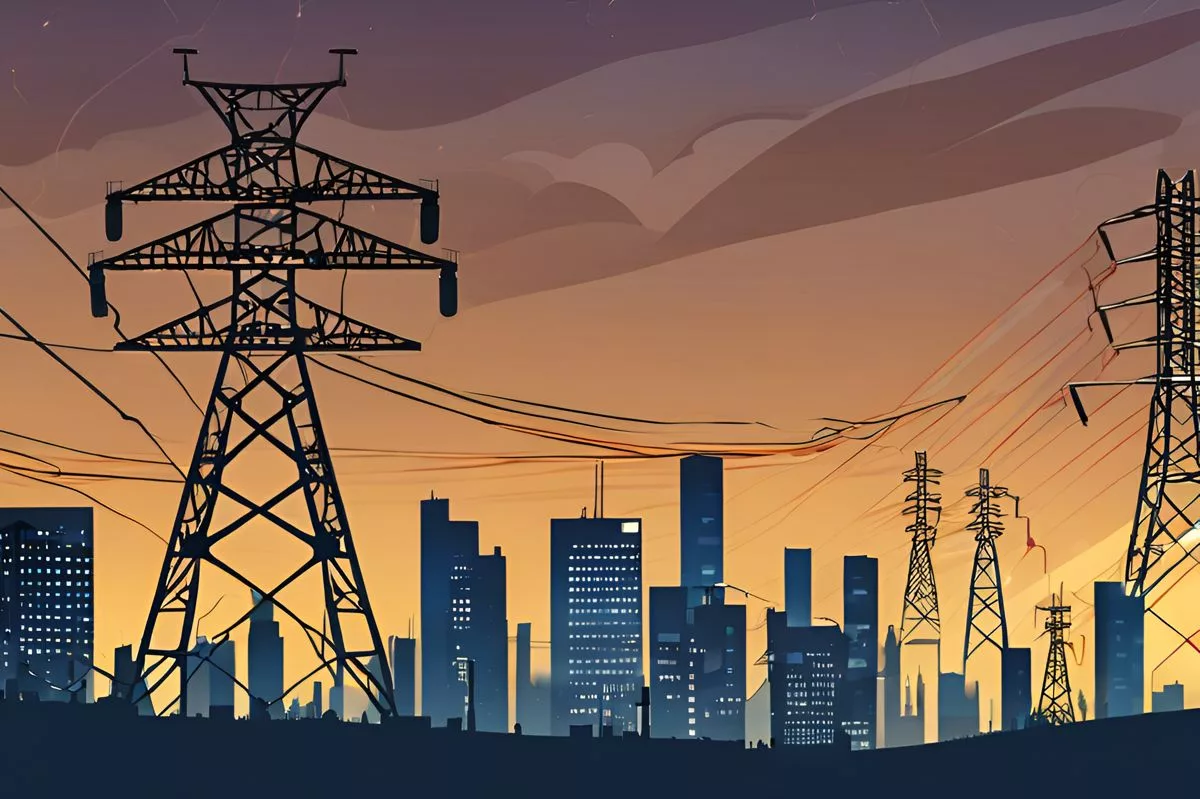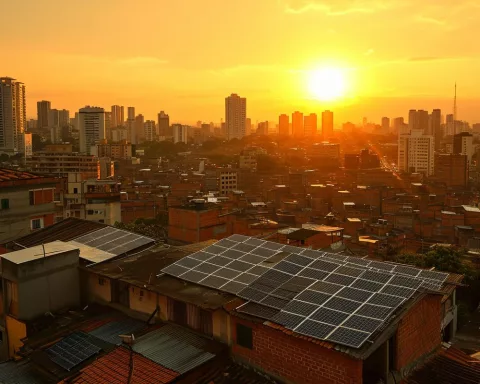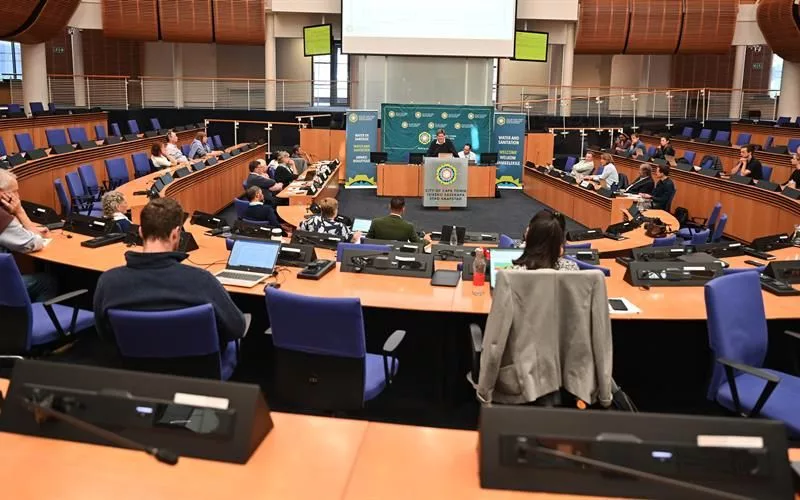The City of Cape Town plans to invest over R4bn in upgrading and maintaining its electricity grid over the next three years, moving towards a decentralized energy future and allowing for small-scale, independent power producers. This investment aims to terminate load-shedding and stimulate economic growth, with the Building for Jobs budget reinvesting revenue from electricity sales. Residents can provide suggestions via email, telephone, or through their Ward Councillor/Subcouncil offices to participate in shaping this future.
What is the City of Cape Town’s pledge to revamp its electricity grid?
The City of Cape Town has pledged to invest over R4bn into upgrading and maintaining its electricity grid over the next three years. This investment aims to move towards a decentralized energy future, welcoming small-scale, independent power producers and diversifying the city’s energy landscape. The strategy also strives to terminate load-shedding and stimulate economic growth, with the Building for Jobs budget reinvesting revenue from electricity sales. To participate in shaping this future, residents can provide suggestions via email, telephone, or through their Ward Councillor/Subcouncil offices.
Nested within the heartland of South Africa is the bustling city of Cape Town, known for its dynamic economy and rich culture. The city has embarked on an ambitious mission to overhaul its electricity grid, equipping it for a decentralized, fluid energy future. This significant undertaking exemplifies the city’s dedication to progressive solutions and economic resilience while lighting a beacon of hope for its residents plagued by constant load-shedding issues.
A Four-Billion Rand Investment
The City of Cape Town has unveiled plans to infuse more than R4bn into upgrades and maintenance of the electricity grid over the next three years. This substantial investment forms part of the City’s proposed Building for Jobs Budget for 2024/25, a strategic initiative spearheaded by the City’s Mayoral Committee Member for Energy, Councillor Beverley van Reenen.
Understanding the crucial role of electricity as a catalyst for economic growth and job creation, Councillor van Reenen commented, “Heavy investment in upgrading the electricity grid infrastructure is a must for any city aiming to terminate load-shedding.” This investment strives to steer the city away from the monopoly of Eskom and towards a future featuring thousands of diverse power suppliers, signifying a sea change in Cape Town’s energy canvas.
Moving Towards Decentralization
The strategy involves welcoming small-scale, independent power producers, commercial organizations, and even inhabitants selling surplus solar energy back to the city. This diversification aims not only to stimulate economic growth but also to position Cape Town as the first city in South Africa to successfully terminate load-shedding.
The proposed R4bn grid investment does come with its set of hurdles. High incidents of vandalism, theft, and damage from load-shedding form a challenging landscape against which this ambitious plan is engineered. However, the City remains resolute with strategies in place to reinforce the robustness of its infrastructure and reduce vandalism over time.
Combatting Load-Shedding and Bolstering Economy
Cape Town has already made substantial progress towards shielding against load-shedding. The City currently provides protection of up to two stages where viable, strengthening the regional economy. By 2026, the City aims to expand protection against the first four stages of Eskom’s load-shedding.
Beyond safeguarding against load-shedding, the Building for Jobs budget symbolizes the City’s commitment to reinvesting revenue from electricity sales to boost the economy, enable job creation, and benefit the city’s residents. The budget comment period, a vital phase for citizen engagement, is scheduled to conclude on 30 April 2024.
The City’s bold plan to revamp its electricity grid demonstrates its commitment to its citizens and environmental sustainability. It is a pledge towards a resilient, sustainable, and economically vibrant future, setting a benchmark for other cities within South Africa and globally. As Cape Town sets sail on this transformative voyage, it is thrilling to anticipate the arrival of a dynamic new energy era.
Citizen Participation
To participate in shaping this future, residents can voice their opinions and provide suggestions via email, through their Ward Councillor/Subcouncil offices, or by telephone. Additionally, more information about the tabled budget can be found on the City’s official website, which also provides assistance for rates and services relief.
Echoing the sentiments of Councillor Beverley van Reenen, “The City’s Building for Jobs budget clearly evidences how the City is reinvesting the proceeds from electricity sales for the benefit of our economy, job creation, and all city dwellers.” As the curtains close on the old energy regime, Cape Town stands ready to embrace a new daybreak, powered by an enhanced, resilient electricity grid and the aspirations of its people.
What is the purpose of the City of Cape Town’s investment in the electricity grid?
The purpose of the City of Cape Town’s investment in the electricity grid is to upgrade and maintain the grid, move towards a decentralized energy future, allow for small-scale, independent power producers, terminate load-shedding, and stimulate economic growth.
How much money will the City of Cape Town invest in upgrading and maintaining its electricity grid?
The City of Cape Town plans to invest over R4bn into upgrading and maintaining its electricity grid over the next three years.
How will the City of Cape Town move towards a decentralized energy future?
The City of Cape Town will move towards a decentralized energy future by welcoming small-scale, independent power producers, commercial organizations, and inhabitants selling surplus solar energy back to the city.
What are the challenges the City of Cape Town faces with this investment?
The City of Cape Town faces challenges of vandalism, theft, and damage from load-shedding, which may hinder the success of this investment. However, the City has strategies in place to reinforce the robustness of its infrastructure and reduce vandalism over time.
How will the Building for Jobs budget benefit the economy of Cape Town?
The Building for Jobs budget will reinvest revenue from electricity sales to boost the economy, enable job creation, and benefit the city’s residents.
How can residents participate in shaping the City of Cape Town’s electricity grid future?
Residents can participate in shaping the City of Cape Town’s electricity grid future by providing suggestions via email, telephone, or through their Ward Councillor/Subcouncil offices. More information about the tabled budget can be found on the City’s official website, which also provides assistance for rates and services relief.












